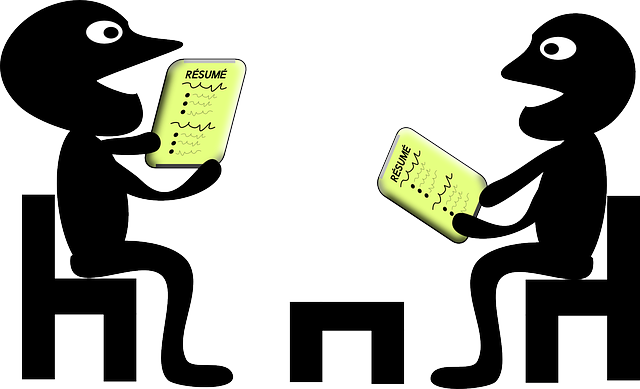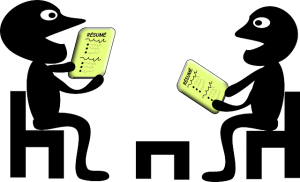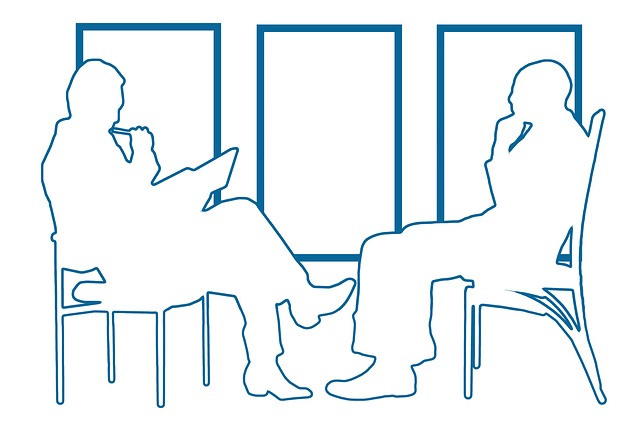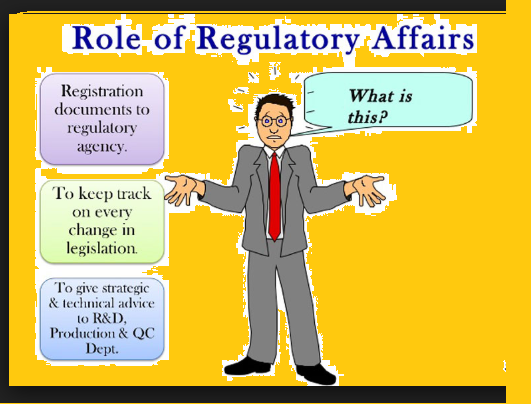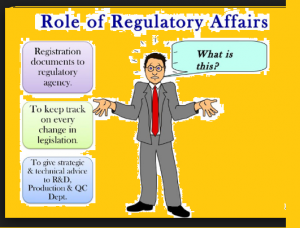HPLC Interview Preparation for Pharmacy & Science Graduates
Have you graduated in pharmacy or science stream? Then either you must be searching for a job which gives good fetching and career growth or pursue higher studies specialization. Also, there are several corporations which offer you various job opportunities apart from your stream. Among the science and pharmacy graduates, one of the brightest fields is to opt for HPLC vacancies. High-performance liquid chromatographies (HPLC) have widespread use in Pharmaceutical Industrial and Analytical Field. In industries, the main purposes of employing HPLC are for identifying, quantifying and purifying the individual components of the mixture.
It is a chromatographic technique used to split a mixture of compounds and play an important and critical role in the fields of analytical chemistry, biochemistry and industrial. HPLC has a role of Open Access Journal too as it helps in drug formulations. Since it is used to test the products and to detect the raw ingredient used to make them i.e., qualitative and quantitative analysis there are stringent regulations established by the U.S. Food and Drug Administration (FDA). Moreover, this obligates all pharmaceutical companies to detect the quality of their products by using the HPLC before allowing them to sell it in the global market.
Specific Benefits of Using HPLC
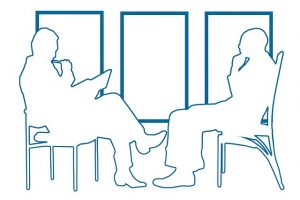
The most important benefit gained from the HPLC technique in the industrial and analytical field is that it helps in structure elucidation and quantitative determination of impurities and degradation products in bulk drug materials and pharmaceutical formulations. These benefits gained by the utilization of HPLC are not only limited for the synthetic drugs and formulas but also include herbal medicine too. Therefore, in this regard, the open access journals shall encourage the researchers to work hard in order to clarify the importance of HPLC use in the industrial or analytical field is a very important point.
The industries look for young, dynamic and talented candidates who bring different ideas, skills and experiences to mix and ready to learn and dive into the organization. If you properly put your efforts in getting jobs of HPLC based industries then obviously you need to prepare for these interview questionnaire sessions.
Interview Q/A for HPLC
- What is the principle of HPLC?
Answer: When a mixture of compounds is passed through the HPLC column; it gets separate into its components before it exits from the column. Details on the principle of HPLC System are given on different websites. The basic principal of HPLC is the partitioning the analytes between the solid phase and the mobile phase.
-
Why do we use HPLC?
Answer: Polar molecules in the mixture will therefore spend most of their time moving with the solvent. That means now it is the polar molecules that will travel through the column more quickly. Reversed phase HPLC is the most commonly used form of HPLC.
- What to Do When Back Pressure Increases?
Answer:
- An increase in back-pressure usually suggests either a guard or analytical column problem. To find exactly where the problem lies we suggest you remove the guard column (if you are using one) and replace the old cartridge with a new one.
- If the original pressure is restored, you solved the problem.
- If the pressure remains high, disconnect the analytical column from the system, backflush it (do NOT connect the column to the detector while doing so) and run a few column volumes of your mobile phase through the column.
- If the problem still persists you may have some strongly retained contaminants in your column coming from your previous injections.
- Run the appropriate restoration procedures, as suggested by the column manufacturer, and retest the column.
- If the initial pressure is not restored you may have to change the inlet frit or replace the column.
- Always run your system (2 to 5 ml/min) without the guard column and the analytical column to verify that your pressure isn’t coming from another source, like a blocked in-line column prefilter, blocked/kinked tubing, particulates blocking your injector etc.
- Always work your way from the detector back to the pump to isolate the problem.
-
How Do I Determine The Void Volume In Hplc?
Answer: The void volume of a system is usually determined by injecting an unretained standard (Uracil in RP-HPLC) that has no or very little retention on a particular phase. Slight variations in this value are explained by the extra column dead volume of your specific system configuration and set-up.
Multiply the elution time of the unretained compound by the flow rate to get the actual void volume of the system and column. To determine the column void volume alone you would need to subtract the system void volume determined without the column attached.
- 5. Why Should I Use A Guard Column With My Analytical Or Preparative Column?
Answer:
- A guard column is recommended to protect the analytical/preparative column from contamination from particulates from the injection, debris from worn pump seals/injector rotor seals or unfiltered mobile phases.
- Filtration through a 0.22um to 0.45 um should be done in order to remove particles and help degas the mobile phase at the same time.
- Solid Phase Extraction or Liquid Liquid Extraction also help produce a cleaner sample for direct injection.
- Failure to use a guard column directly exposes the analytical or preparative column to contamination and therefore reduces its practical lifetime.
- Care should be taken to use, whenever possible, the same material in the guard column as in the analytical/preparative column especially when doing method development.
- Typical analytical guard columns are 1 or 2 cm long with either 2.0 (2.1) or 4.0 (4.6) mm depending on the column dimensions and 1cm long for 10mm, 21.2mm & 30mm column id.
- Whether you opt for 1 or 2 cm long guard columns is tied to how harsh your mobile phase is and how messy your sample is. Ideally, in order to keep your chromatography and to avoid increasing the system pressure, you should use the shortest guard column available and use the same id as the column whenever available. Otherwise you should choose the closest smaller id guard column available.
- What Happens If My Sample Solvent Is Stronger Than My Mobile Phase?
Answer:
We do not recommend injecting in a stronger solvent because it usually results in peak distortion, broadening, poor sensitivity, and shortening of retention times.
This happens because some analytes will tend to travel too quickly through the column, instead of eluting in a symmetrical band.
If you absolutely must do this, keep the volume as small as possible and make sure the solvents are miscible.
- How Much Sample Can I Inject On My Lc Column?
Answer: Two different types are possible:
- Mass overload (too much analyte injected on the column)
- Volume overload (too much liquid injected on the column)
The chromatograms are somewhat different in these 2 situations.
In mass overload, the analyte molecules saturate the silica at the inlet end of the column which causes the excess molecules to move forward down the column without much interaction, reducing in turn the analyte retention time and showing a “shark fin” peak shape (fronting).
Volume overload occurs when the injected sample volume is large enough to carry analyte molecules through a significant proportion of the interstitial volume within the column and leads to shark fin type peaks as well and later elution times.
- What Size Threads Are On The End Fittings Of My Hplc Column?
Answer: Most fittings on your HPLC and UHPLC systems and columns have 10-32 threads. However, you will find that fittings and columns from Waters, Rheodyne and SSI (Lab Alliance) have different seating depths.
- What Is The Internal Diameter Of My Lc Tubing?
Answer: The internal diameter of HPLC grade stainless steel tubing is identified by the color coded band on the pre cut tubing while HPLC PEEK tubing is also colored according to its internal diameter.
Typical encountered colors used for 1.16” od HPLC tubing (color coded band for SS or solid color for PEEK) are:
- Black = 0.004” ID
- Red = 0.005” ID
- Yellow = 0.007” ID
- Blue/Tan = 0.010” ID
- Orange = 0.020” ID
- Green = 0.030” ID
Please note that these colors may differ depending on the manufacturer especially when it comes to HPLC stainless steel tubing. Please check with your tubing supplier/manufacturer to confirm tubing ID color coding. Please note that the HPLC stainless steel tubing comes in precut lengths as it is virtually impossible to produce smooth, clean, bur-free cuts without the manufacturer’s precise machinery tools. As for SS in HPLC, it also becomes extremely difficult to produce, in-house, bur-free, perfect cuts especially when using the narrower IDs (less than 0.005” ID).
- How Much Should I Change My Injection Volume If I Change The Size Of My Column?
Answer: Optimal injection volumes are directly related to the cylinder volume of your column and are, therefore, dependent on the cross sectional area (A=π r2) and length (L) of your column. Since that is the case, you can estimate any adjustment from an existing method for injection volume.
If you are converting to a different size ID (with packing material and length remaining the same), just multiply your current volume by the ratio of the radii squared to determine the correct volume for your new method. For example, if you are currently injecting 20 µL on a 150 x 4.6 mm column and then switch to a 150 x 3.0 mm column, you could estimate the adjusted volume by multiplying 20 x (1.52)/(2.32). Your new volume should be about 8.5 µL.
- How Do I Determine Total Column Volume Or Void Volume For Lc?
Answer: The term “column volume” usually refers to the void volume, which represents the volume of mobile phase that is between the silica particles. This area is referred to as the interstitial space. You can estimate void volume by multiplying the total column volume (pi x radius2 x length) by a factor that estimates the typical packing efficiency for a particular column type. For fully porous columns, the equation for void volume (in mL) is V = (0.68) pi r2 L, where V = column volume in mL, r = column radius in cm, and L = column length in cm. For superficially porous columns, such as our Raptor columns, the factor is different and the equation is V = (0.50) pi r2 L.
Void volume is more commonly estimated experimentally by injecting a standard containing an analyte that is known to have no, or negligible, retention on that particular column phase. A good example of this for reversed-phase HPLC is uracil. One should be aware that this estimation is also subject to extra column dead volume for the specific instrument that is being used, so it may vary slightly.
- Why Am I Seeing Bleed From My Biphenyl Column On My Uv But Not On My Mass Spec?
Answer: A small amount of phase bleed is inherent for all phases, including phenyl phases, and is somewhat dependent on the size and dimensions of the column. This bleed is usually negligible and does not affect retention times, but may be visible, particularly by UV detection. It can often be reduced after conditioning. Bleed may also be minimized by using an isocratic elution, a shallower gradient, and/or incorporating a gradient flush between runs.
- What Should I Use To Analyze Explosives (as Per Epa Method 8330b) By Hplc?
Answer: While no one LC column can provide baseline separation for all of these analytes combined, the Raptor Biphenyl and Raptor ARC-18 columns from Restek are an outstanding choice for primary and confirmation analysis. Fully porous HPLC particles, namely the Ultra C8 and Ultra Aromax columns, are also an option. Keep in mind that a variety of column phases may provide partial solutions for this method, but Restek has found these pairs to give optimal results.
- Is Special Conditioning Needed For The Raptor Biphenyl Column Prior To Its First Use, Or If It Has Been Sitting Idle?
Answer: For the most part, the Raptor Biphenyl column behaves just like any other reversed-phase column. However, in certain circumstances, longer equilibration times may be needed. Switching between organic solvents, such as acetonitrile and methanol, may require a 15-20 minute flush in high organic mobile phase.
- How Much Equilibration Time Is Required In Between Gradient Runs On A Raptor Biphenyl Column?
Answer: Whether you are using fully porous silica or SPP silica, some equilibration time is needed between runs if you are using a gradient and the amount of time is similar for both types of columns. Usually, the equivalent of 7 column (void) volumes is sufficient unless you are using an ion-pairing technique.
- 1 What Mobile Phase Solvents Are Compatible With Spp Or Raptor Columns?
Answer:
Any solvent that is commonly used for reversed-phase LC will work fine, including but not limited to water, methanol, and acetonitrile.
- Can I Pump Solvent Through The Raptor Biphenyl Column Backwards To Clean It?
Answer: Similar to UHPLC columns, it is not recommended to reverse the flow for these columns. However, you can still pump through a series of solvents, as long as they are miscible.
- 18. How Much Can I Inject Onto A Raptor Column?
Answer: Injection volume depends on a number of factors including column dimensions, sample solvents, and analysis requirements. As is always a good practice with chromatography, try to inject as little as possible and in the same or weaker solvent than your mobile phase.
- How Do Raptor Arc-18 Columns Differ From Ordinary C18s?
Answer: The significant difference is the ruggedness of the bonded phase. With the ARC-18, any residual silanol groups are shielded and made inert through steric protection. The result is a wider operating pH range of 1.0–8.0. The ARC-18 is particularly useful between a pH of 1.0 and 3.0, where other C18 column phases may begin to degrade under these harsh conditions. Like the Raptor Biphenyl column, the stationary phase is bonded to superficially porous silica particles (SPP).
- How Well Does The Raptor Arc-18 Column Work For Acids And Bases?
Answer: The ARC-18 provides added retention for charged bases and, in many cases, is preferred over a conventional end-capped C18. For neutral acids, it works well and is preferred over end-capped C18 phases, particularly at pH < 3. The ARC-18 also works for neutral bases and charged acids, but provides more advantages and performs best at the lower pH ranges.
- Can The Raptor Arc-18 Column Be Used With 100% Aqueous Mobile Phases?
Answer: No. We recommend using the Raptor ARC-18 column with at least 5% organic in the mobile phase. For applications requiring higher aqueous content, we suggest the Ultra Aqueous C18 or Pinnacle DB Aqueous C18 columns.
- How Do We Know That The Raptor Columns Are Rugged?
Answer:
We use frits that are less prone to clogging from sample matrices, and the column packing is less likely to be damaged by higher pressures that might develop. Added protection of a guard column is also available and recommended to extend the life of the column further.
- Which Fittings Can Be Used For Uhplc?
Answer: You can either use the stainless steel fittings that are like the ones that come with your UHPLC system or you can use EXP fittings. The EXP fittings can be used up to 20,000 psi when tightened with a wrench. In any case, always make sure you are using a fitting with zero dead volume so that the high efficiency provided by UHPLC is not compromised by extra dead volume.
- How Do I Tighten My Fittings?
Answer: Our polymer-based universal connectors and PEEK union connectors only need to be hand-tightened, whereas any of the stainless steel fittings need to be wrench-tighten.
The EXP fittings can be used either way: They are hand-tightened for use up to 8,700 psi or wrench-tightened for use up to 20,000 psi. Note that over-tightening causes galling and will destroy the threads. Fittings that need to be wrench-tightened generally require ¼-turn past hand tight to achieve a leak-tight seal. Unfortunately, there is no universal torque setting.
- What Injection Solvent Should I Use For Hilic Separations?
Answer: The injection solvent should be as close of a match as possible to the initial mobile phase conditions, which are high in organic content for HILIC separations. By matching the injection solvent to the initial mobile phase conditions, you get better peak shape, increased retention, and higher sensitivity.
- What Kind Of Ph Effects Do I Have To Be Aware Of With Hilic Separations?
Answer: The effect of pH on analyte charge state varies based on each compound’s pKa, to pH effects must be evaluated carefully during method development. With HILIC methods, the high concentration of organic solvent in the mobile phase raises the pH, and the actual eluent pH can be 1–1.5 units higher than in the aqueous portion alone. The charge state of the column itself can also be affected.
For example: in a Raptor HILIC-Si column, the bare silica has a pKa between 3.8 and 4.5, so the mobile phase pH changes the charge of the silica surface, making it neutral in very acidic conditions and ionized (negatively charged) as the pH begins to approach 3.8 and above. For this reason, if your analyte has one or more protonated amine or quaternary amine groups, it’s a good candidate for analysis on a Raptor HILIC-Si column.
- Can I Use Buffers For Hilic Separations? What Kind and What Concentration?
Answer: Many HILIC separations use a mass spectrometer for the detector, so volatile buffers like ammonium formate and ammonium acetate are very common. However, the high organic content of the mobile phase can cause buffer salts to precipitate, which can lead to downtime for instrument maintenance. In addition, high buffer concentrations can impact chromatography by reducing analyte retention.
To avoid these effects, method optimization is required and 10 mM is a good starting point for buffer concentration. Both the A and B mobile phases should be buffered equally in order to keep the ionic strength constant during a gradient for the most consistent MS detector response. Check with your MS vendor for the maximum buffer concentration they recommend for your ESI source.
- What Should I Use To Analyze Explosives (as Per Epa Method 8330b) By Hplc?
Answer: While no one LC column can provide baseline separation for all of these analytes combined, the Raptor Biphenyl and Raptor ARC-18 columns from Restek are an outstanding choice for primary and confirmation analysis. Fully porous HPLC particles, namely the Ultra C8 and Ultra Aromax columns, are also an option. Keep in mind that a variety of column phases may provide partial solutions for this method, but Restek has found these pairs to give optimal results.
30.Can I Get A Sharper Peak By Injecting My Sample In A Weaker Injection Solvent?
Answer:
- In this scenario, the sample is initially concentrated onto the head of the column and moves through the column in a tight band.
- This technique is sometimes used to minimize band broadening for a larger volume sample injection.
- Keep in mind that your sample components must be soluble in the mobile phase as well, in order for this to work.








